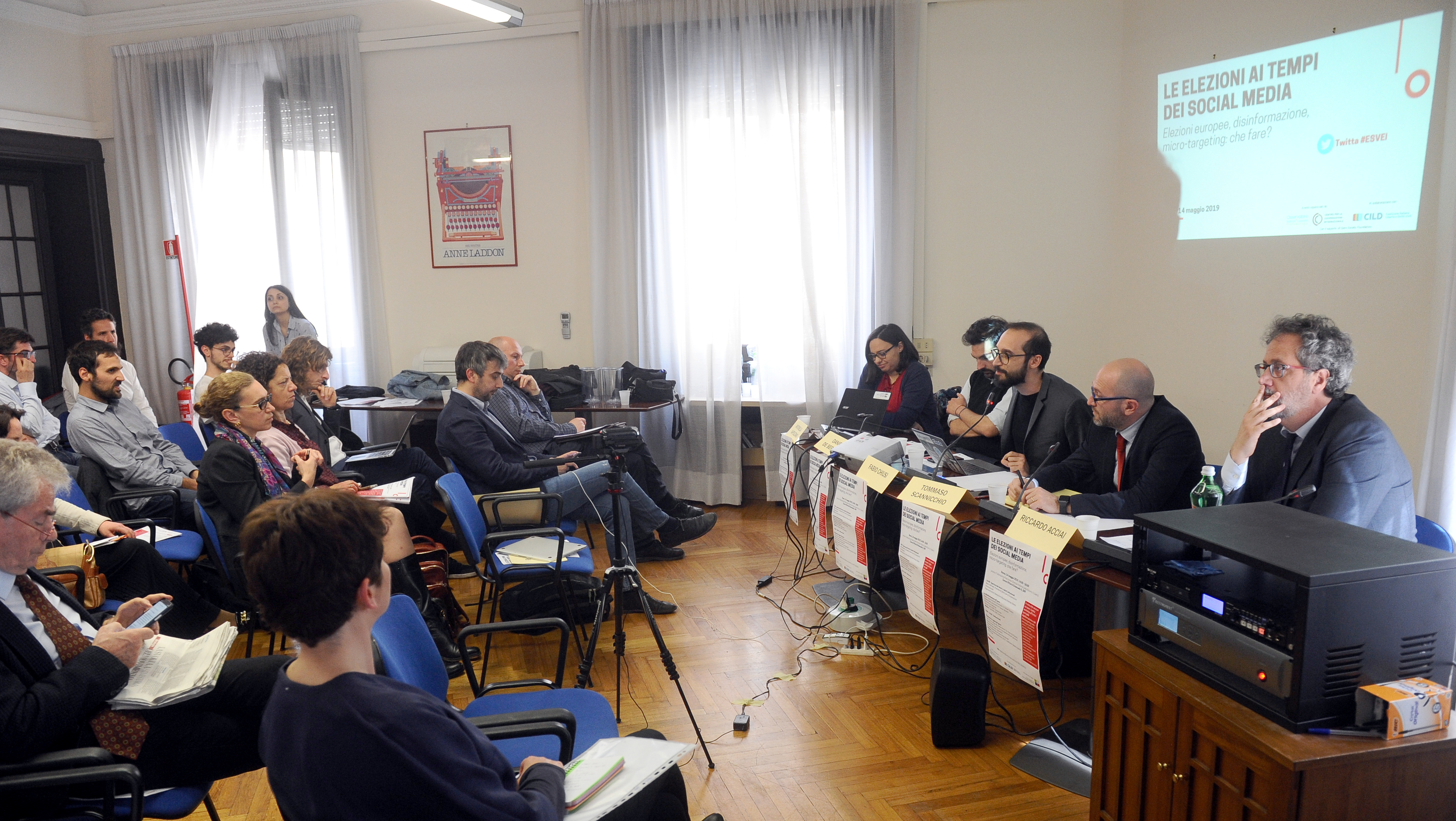
Photo by Niccolò Caranti/OBCT (CC BY)
A group of experts met to discuss some problems with online information spaces and to submit concrete proposals to political decision-makers.
The upcoming European parliament elections put the fear of interference by internal and external actors in democratic process through social media at the centre stage. A group of experts (researchers, journalists, representatives of institutions and civil society) met in Rome on May 14th to share ideas and new perspectives on the phenomenon. The purpose was to agree on a number of concrete proposals to protect the integrity of the public debate in Italy.
One of the main problems that emerged was the absence of regulation of online political advertising, particularly on social networks. A law is needed to force platforms to be transparent with ads shown to users.
The workshop, titled “Elections in the times of social media”, was organised by OBC Transeuropa / International Cooperation Centre (OBCT/CCI), in cooperation with the Italian Coalition for Civil Liberties and Rights (CILD).
These were, in brief, the conclusions:
- We need to regulate online political advertising, similarly to traditional political communication. This can be done by creating a public archive, independent from platforms, allowing anyone to check in real time the main data about sponsored content: the message, the advertiser, the target, and how much was paid.
- Don'ts: removing content and shutting down pages is useless and potentially damaging.
- Relying on self-regulation by platforms is ineffective; it is also dangerous to entrust platforms with decisions about content to be removed.
- The spread of online disinformation does not depend on technology as much as on cognitive and psychological mechanisms that tend to make fact-checking and debunking ineffective.
- We need to act before the spread of disinformation, by adopting narratives that are able to reduce the polarisation of opinions on the specific topic.
- Fact-checking is not very effective when focusing on individual contents; attention should be paid to the informative ecosystem as a whole – quality of the sources, audience, target, intermediaries.
- More transparency on the mechanisms by which information circulates on the web can give more control to users and help rebuild a climate of trust.
- In order to improve the public and political debate on these topics, we need more multidisciplinary research, more funds for research, more journalistic expertise, and more discussion between stakeholders.
- We need to create critical mass by reinforcing transnational and inter-institutional cooperation between independent authorities and dialogue between authorities and civil society.
The discussants in the first session, which was moderated by Fazila Mat (OBC Transeuropa/ Centro per la Cooperazione Internazionale), included Walter Quattrociocchi and Fabiana Zollo (Ca' Foscari University of Venice), Nicola Bruno (Dataninja), and Giorgio Comai (OBCT/CCI). The discussants in the second session, which was moderated by Tommaso Scannicchio (CILD), included Fabio Chiusi (Valigia Blu/ Nexa Center for Internet & Society), Riccardo Acciai (Italian Data Protection Authority), Daniele De Bernardin (Openpolis), and Antonella Napolitano (Privacy International).
This publication has been produced within the project ESVEI, supported in part by a grant from the Foundation Open Society Institute in cooperation with the OSIFE of the Open Society Foundations. The contents of this publication are the sole responsibility of Osservatorio Balcani e Caucaso Transeuropa.







 To Top
To Top